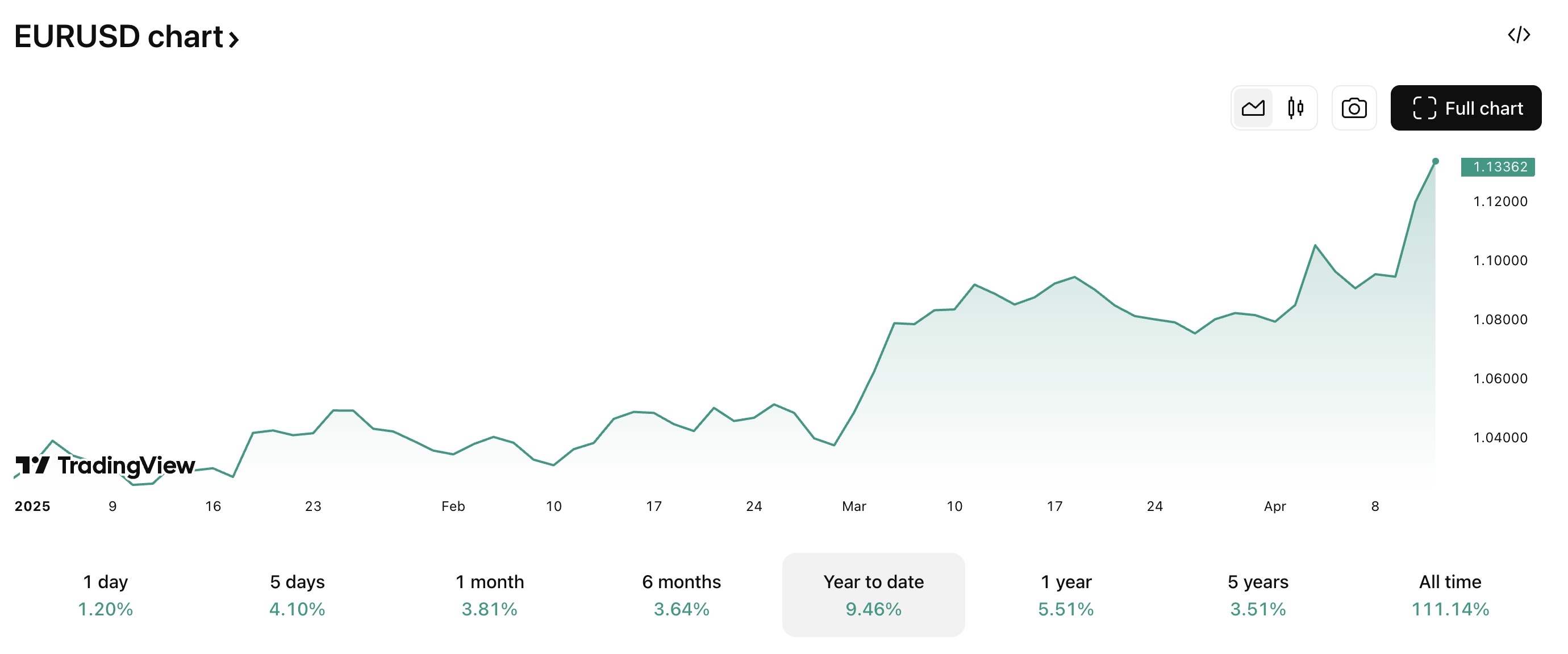
Trump Tariffs – Mistake or Strategic Move?
Last week, Trump announced a base tariff of 10% on imports from all countries, along with substantially higher “reciprocal” tariffs scheduled to take effect on April 9th. Ultimately, these reciprocal tariffs were imposed only on China, with implementation for other countries postponed.
Trump’s primary goal with these tariffs is to transform the U.S. into a net exporter of goods and services, re-industrializing the economy and creating additional jobs—even though the U.S. labor market is already close to full employment. However, this approach faces two significant challenges:
- Stagflation Risk: Households have already endured sustained inflation above 3%, forcing many to take multiple jobs just to afford rent. Introducing tariffs will likely push inflation even higher by disrupting and reducing the supply of goods and services, thereby increasing prices for consumers. Elevated inflation combined with reduced consumption would lead to stagflation. If this occurs, Trump may face impeachment before the end of his term.
- Short-term Mandate (≤4 years): Businesses are unlikely to invest in new factories within the U.S., given that Trump’s policies could be reversed by the next administration in four years or less. The short-term nature of his mandate undermines confidence in sustained policy stability, discouraging long-term corporate investments.
Effects of Tariffs:
These tariffs could reduce overall consumption and corporate profitability, likely resulting in mass layoffs and increased credit delinquencies as private-sector revenues and profit margins shrink.
Consequently, as defaults rise, banks would tighten credit, effectively paralysing economic activity. The Federal Reserve would then be trapped in a dilemma: raise interest rates to combat high inflation or lower rates to stimulate sluggish growth. However, because this is fundamentally a supply-side issue, the Fed would likely need to raise rates to suppress demand and control prices.
Before this extreme scenario unfolds, Trump is expected to capitulate, having severely damaged America’s international reputation.

Given the current administration’s aggressive economic policies towards other nations, we’ve already begun to observe foreign investor panic and significant sell-offs in the USD, driven by foreign investors withdrawing their capital from the U.S. amid growing trust concerns. Historically, the U.S. has greatly benefited from substantial net foreign direct investment; however, unless this fiscal policy is reversed, this trend could quickly shift in the opposite direction.
Conclusion:
Now Trump and the Republican Party must decide whether achieving positive net exports is worth risking a loss of foreign direct investment, damaging the U.S. economy, and undermining international trust.